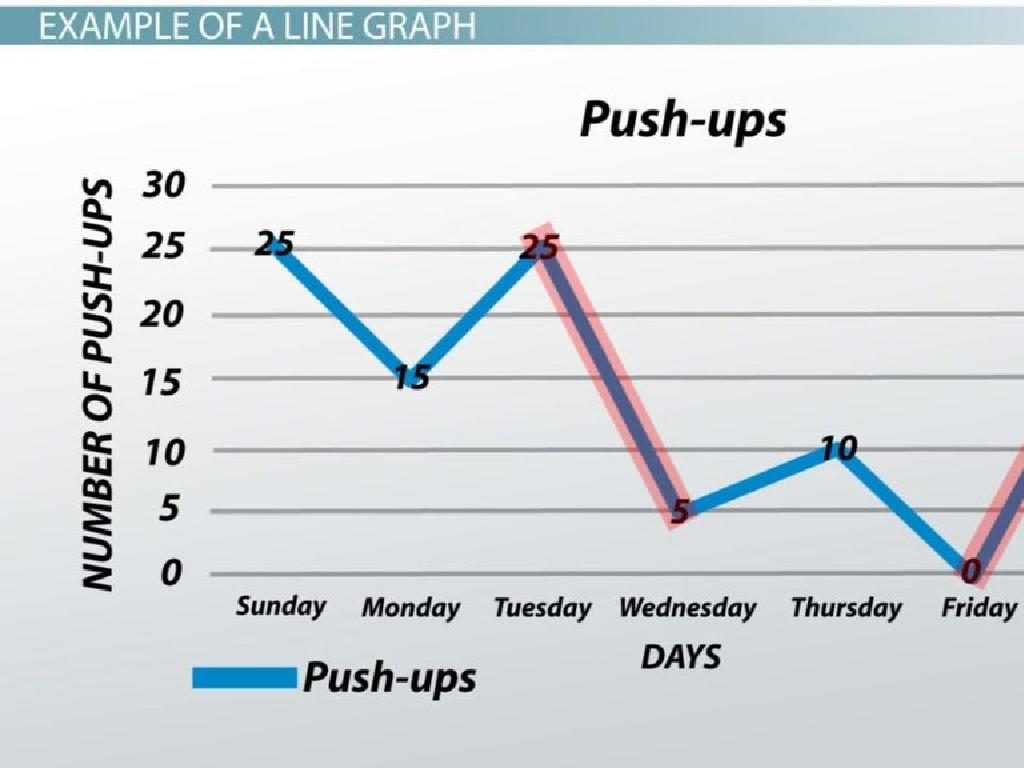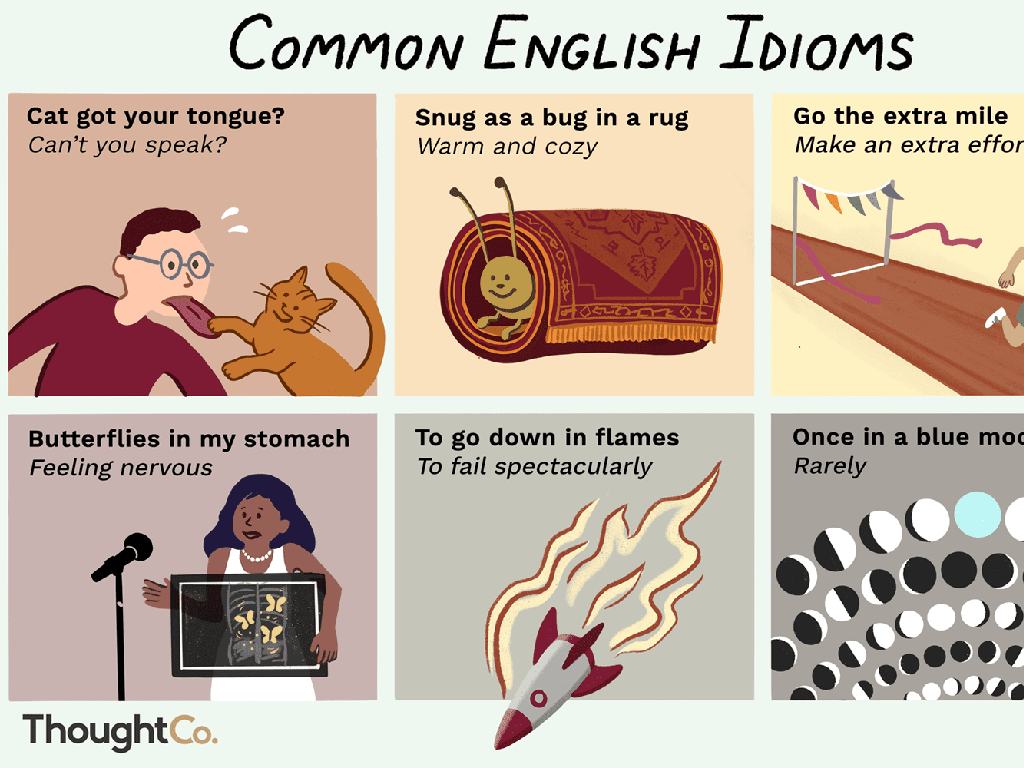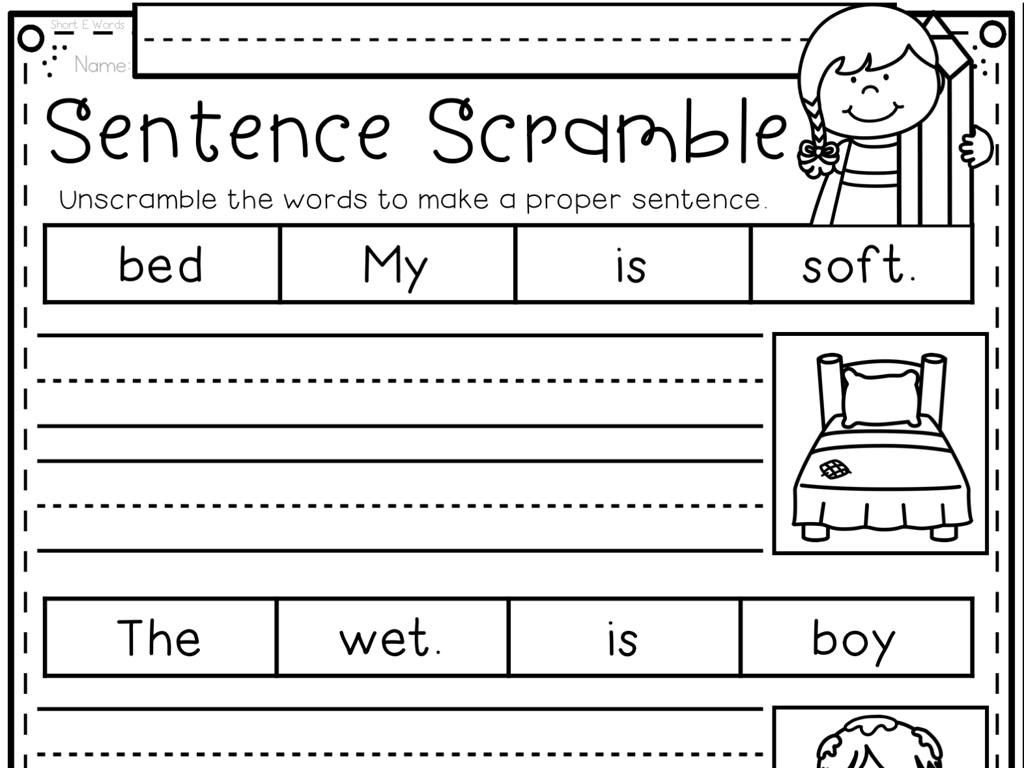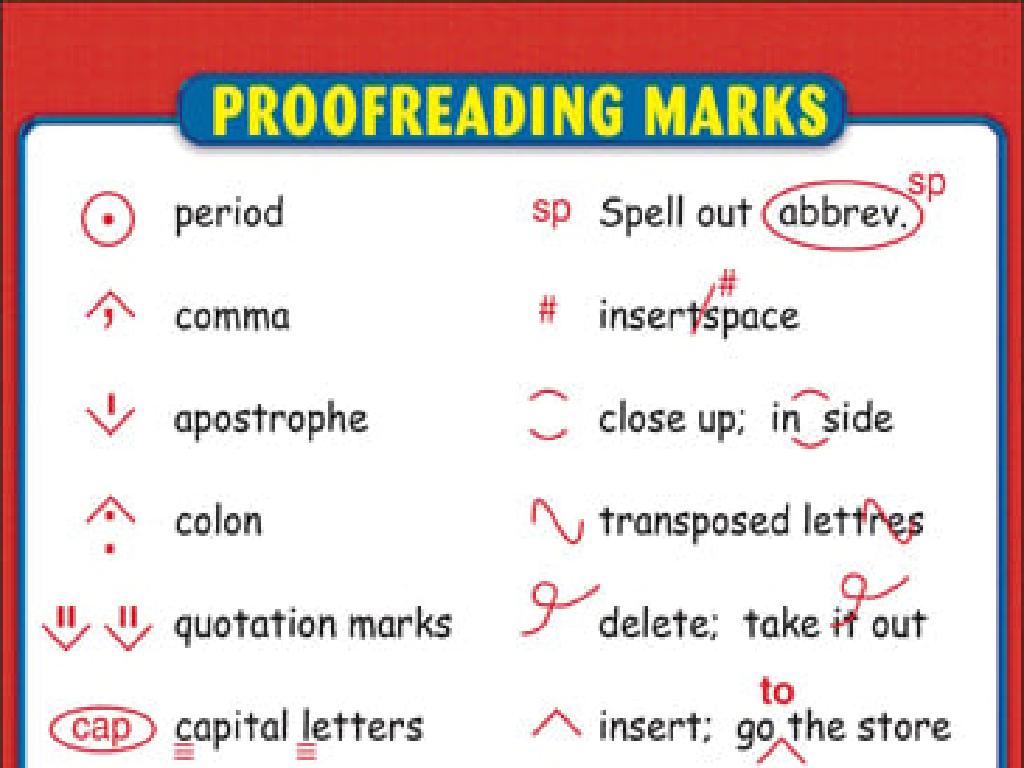Spell The Sight Word: Easier
Subject: Language arts
Grade: Third grade
Topic: Irregular Words
Please LOG IN to download the presentation. Access is available to registered users only.
View More Content
Spell the Sight Word: ‘Easier’
– What are sight words?
Words we recognize without sounding out
– Importance of sight words
They help us read faster and with more confidence
– Meet ‘easier’, our word today
It’s an irregular word that doesn’t follow usual rules
– Practice spelling ‘easier’
Let’s spell it together: E-A-S-I-E-R
|
This slide introduces the concept of sight words to third graders, emphasizing their role in reading fluency. Sight words are commonly used words that students are encouraged to memorize as a whole by sight, so they can recognize them instantly without having to decode them each time. Highlight the importance of these words in enabling smoother and more confident reading. Introduce ‘easier’ as the sight word of the day, explaining that it is an irregular word that doesn’t follow the typical phonetic rules, making it a perfect candidate for sight word practice. Engage the class in a spelling activity, encouraging them to spell ‘easier’ aloud and in writing, reinforcing their memory of the word.
Sight Words: Learning to Read ‘Easier’
– What are sight words?
– Words we often see in texts and are frequently used.
– Sight words’ spelling can be tricky
– They may not fit regular spelling patterns or rules.
– Recognizing sight words quickly
– Knowing them helps improve reading speed and fluency.
– ‘Easier’ as a sight word
– Example: ‘easier’ doesn’t follow typical phonetic rules.
|
This slide introduces the concept of sight words to third-grade students, emphasizing their importance in developing reading skills. Sight words are common words that appear frequently in English and are best learned through memorization and recognition, as they often do not adhere to standard phonetic rules and spelling patterns. By recognizing sight words like ‘easier’ on sight, students can read more smoothly and with better comprehension. Encourage students to practice sight words regularly and use them in sentences to reinforce their learning. Provide examples of activities such as flashcards, word bingo, or word hunts to make learning engaging.
Spelling Sight Words: ‘Easier’
– ‘Easier’ is an irregular word
– Doesn’t follow standard rules
– Comparative form of ‘easy’
– Used to compare two things
– Breakdown: ‘eas’ + ‘ier’
– ‘eas’ is the root, ‘ier’ makes it comparative
– Practice spelling ‘easier’
– Try writing it out and using it in a sentence
|
The word ‘easier’ is a great example of an irregular word that doesn’t follow the typical rules of spelling. It is the comparative form of ‘easy,’ which means it is used when comparing the ease of two things. Breaking the word down can help students remember how to spell it: the root ‘eas’ comes from ‘easy,’ and the suffix ‘ier’ turns it into a comparative. Encourage the students to practice spelling ‘easier’ by writing it out several times and using it in sentences that compare two things, such as ‘Math is easier than science for me.’ This will help them understand both the spelling and the meaning of the word.
Spelling the Sight Word: ‘Easier’
– Listen to the sounds in ‘easier’
– Break down ‘easier’ into sounds: ‘ee-zee-er’
– Use rhyming words for memory
– Words like ‘pleaser’ rhyme and help us recall
– Find words that rhyme with ‘easier’
– Does ‘greasier’ sound like ‘easier’? It rhymes!
– Practice spelling ‘easier’ together
|
This slide is aimed at helping third-grade students learn to spell the word ‘easier’ by using auditory and mnemonic strategies. Start by having the students listen to the pronunciation of ‘easier’ and identify the individual sounds. Then, introduce rhyming words as a method to remember the spelling. Ask the students to brainstorm other words that rhyme with ‘easier’ and discuss how these rhymes can serve as memory aids. Finally, practice spelling ‘easier’ as a class, reinforcing the correct sequence of letters. Encourage students to use these techniques with other irregular words to improve their spelling skills.
Practice Time: Spelling ‘Easier’
– Write ‘easier’ on your whiteboard
– Say each letter aloud as you write
– Pronounce E-A-S-I-E-R slowly as you write
– Check your neighbor’s spelling
– Look at your friend’s board, does it match?
– Is everyone’s spelling the same?
– Discuss any differences you see with the class
|
This slide is for a class activity focused on spelling the sight word ‘easier’. Students will practice writing the word on their whiteboards while saying each letter out loud to reinforce the spelling. They will then compare their spelling with a neighbor to ensure accuracy and consistency. This peer review encourages attention to detail and collaborative learning. As a teacher, walk around the classroom to monitor progress and assist any student who may be struggling with the spelling. Encourage students to help each other and make corrections if needed. This activity not only reinforces the spelling of ‘easier’ but also promotes active engagement and cooperative learning.
Using ‘Easier’ in Sentences
– ‘Easier’ in a sentence
– Example: Reading is easier
– ‘Reading is getting easier for me’ shows improvement
– Your turn to create
– Think of something that got simpler
– Share your sentences
|
This slide is designed to help students understand the use of the word ‘easier’ in the context of a sentence. Start by explaining that ‘easier’ is a comparative adjective used to describe something that is less difficult than before. Provide the example sentence to the class and explain how it shows that reading has become less difficult over time. Then, encourage students to think of their own sentences using ‘easier’. They can consider tasks or activities that have become simpler for them to do. After they have created their sentences, ask volunteers to share with the class to foster a collaborative learning environment. This activity will help reinforce their understanding of the word and how to use it in context.
Game Time: Sight Word Bingo!
– Play Bingo with learned sight words
– Spot ‘easier’ and mark your card
– When ‘easier’ appears, use your marker
– Aim for five in a row to win
– Who will be the Bingo champion?
|
This slide introduces a fun and interactive Bingo game to help students practice sight words, particularly the word ‘easier’. Prepare Bingo cards in advance, each with a selection of sight words that the class has learned, including ‘easier’. Explain the rules: when a sight word is called out, students should look for it on their card and mark it if present. The goal is to get five marked words in a row, either horizontally, vertically, or diagonally. The first student to achieve this shouts ‘Bingo!’ and wins. This activity reinforces word recognition and helps students to differentiate between regular and irregular words in a playful setting. It also encourages attentive listening and quick thinking. Have a few rounds to allow multiple winners, and consider small rewards to motivate participation.
Class Activity: Sight Word Hunt
– Let’s hunt for sight words
– Find rhyming words for ‘easier’
– Look for words like ‘greasier’ or ‘cheesier’
– Write down your findings
– We’ll spell ‘easier’ as a class
|
This interactive class activity is designed to help students recognize and spell the sight word ‘easier’ by engaging them in a fun word hunt. Encourage the students to search around the classroom for words that rhyme with ‘easier’. They can look at posters, books, or any written material available. Once they find rhyming words, have them write these down. After the hunt, gather the students and share the words they found. This will help them understand rhyming patterns and phonetic similarities. Finally, spell the word ‘easier’ together, reinforcing the correct spelling. For students who finish early or need an extra challenge, suggest finding words with similar endings or creating sentences with their rhyming words.
Great Work on ‘Easier’!
– Congratulations on learning ‘easier’!
– Practice is key to perfection
– The more you practice, the better you’ll remember
– Spot ‘easier’ in your reading
– Can you find the word ‘easier’ in a book tonight?
– Review makes learning stronger
– Go over the word a few times before bed
|
This slide is meant to congratulate the students on their hard work learning the sight word ‘easier’ and to remind them of the importance of practice. Encourage them to look for the word in their reading at home to reinforce their learning. Suggest that they practice spelling the word a few times on their own and maybe even write it in a sentence. Remind them that regular review can help solidify their understanding of irregular words like ‘easier’. For the next class, consider starting with a quick review of this word to check retention.






